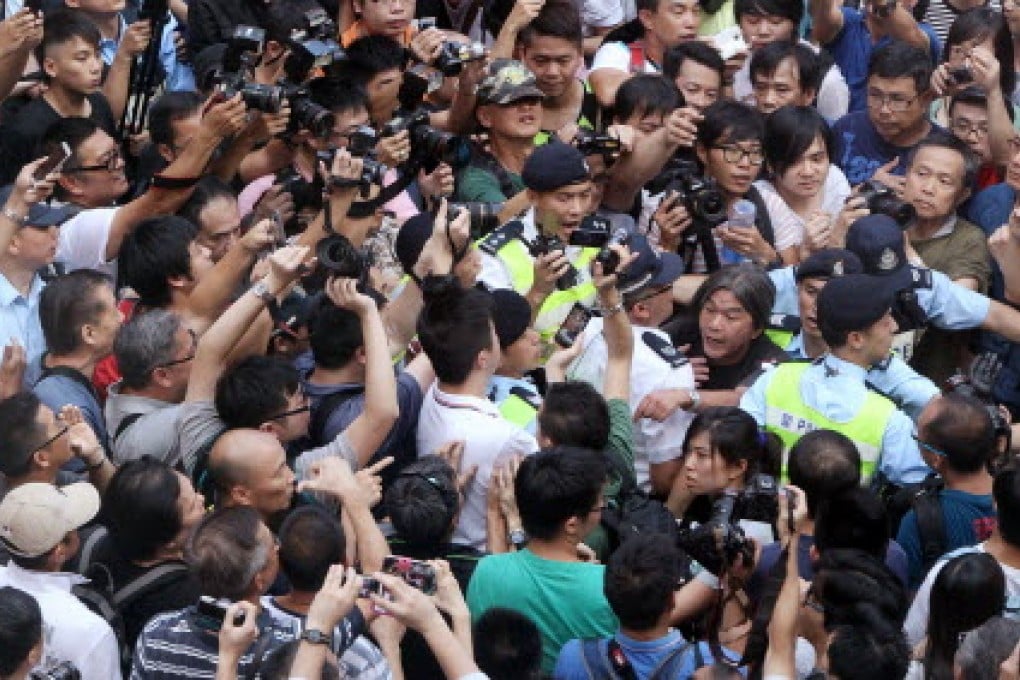Public opinion turns on anti-government protesters
Lau Nai-keung says officials should ride the tide to lay down parameters

The dissidents made a big mistake by staging a mass confrontation on August 4. They stormed the stage of a pro-police rally organised in the wake of a political row sparked by a video. The video, which went viral, showed a schoolteacher hurling verbal abuse at police officers at an earlier protest.
With police intervention, the August 4 confrontation ended with a lot of shouting but without violence. The reaction both in the traditional and new media was clearly in favour of the police and their supporters.
August 4 marked a watershed … the majority has broken the spell of the ‘spiral of silence’
August 4 marked a watershed in public opinion, as the majority has broken the spell of the infamous "spiral of silence". Many in this group have in the past been afraid to speak their mind for fear of being stigmatised and victimised. Now they have come out en masse, knowing they are not alone.
Incidentally, a group of professionals and academics calling themselves the Silent Majority for Hong Kong came forward a few days later and organised a campaign against Occupy Central.
Seizing the moment, Chief Executive Leung Chun-ying visited Tin Shui Wai last Sunday, his first trip there since being elected, to fulfil an election pledge. This time, the situation was not that peaceful. During the visit, his resolute stand on various issues astonished many people. If my observation is correct, this will be the start of a new phase in his term.
This vindicates my assertion that mainstream Hong Kong people badly want change, but not to the point of rocking the boat, never mind some kind of regime change as some dissidents would like. When our dissidents go too far, the silent majority will rise up and try to push them back, and this is what we are witnessing now.